 W
WFrancis Asbury was one of the first two bishops of the Methodist Episcopal Church in the United States. During his 45 years in the colonies and the newly independent United States, he devoted his life to ministry, traveling on horseback and by carriage thousands of miles to those living on the frontier.
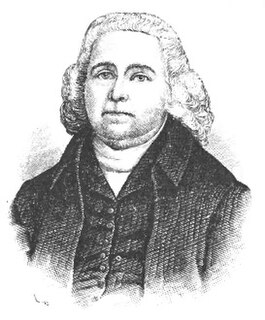 W
WIsaac Backus was a leading Baptist minister during the era of the American Revolution who campaigned against state-established churches in New England.
 W
WJoel Barlow was an American poet and diplomat, and French politician. In politics, he supported the French Revolution and was an ardent Jeffersonian republican.
 W
WRev. Jonathan Boucher, FRSE, FSA was an English clergyman, teacher, preacher and philologist.
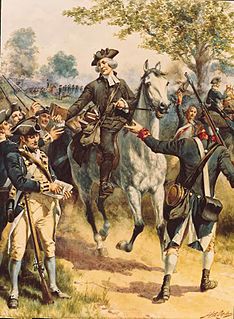 W
WJames Caldwell was a Presbyterian minister who played a prominent part in the American Revolution.
 W
WJohn Carroll was an American prelate of the Roman Catholic Church who served as the first bishop and archbishop in the United States. He served as the ordinary of the first diocese and later Archdiocese of Baltimore, in Maryland, which at first encompassed all of the United States and later after division as the eastern half of the new nation.
 W
WJonas Clarke, sometimes written Jonas Clark, was an American clergyman and political leader who had a role in the American Revolution and in shaping the 1780 Massachusetts and the United States Constitutions.
 W
WMyles Cooper was a figure in colonial New York. An Anglican priest, he served as the President of King's College from 1763 to 1775, and was a public opponent of the American Revolution.
 W
WSamuel Cooper was a Congregational minister in Boston, Massachusetts, affiliated with the Brattle Street Church. He was born in Boston to William Cooper and Judith Sewall, attended the Boston Latin School, and was graduated from Harvard College in 1743. He was ordained as a minister on May 21, 1746, and served as pastor of the Brattle Street Church, 1747-1783. Members of his parish at the Brattle St. Church included some of the most influential people of the American Revolution: John Hancock, Samuel Adams, Joseph Warren, John Adams, and others. He corresponded with Benjamin Franklin, Charles Hector d'Estaing, Gideon Hawley, Charles Gravier de Vergennes; and was associated with Phillis Wheatley. In 1780, he co-founded the American Academy of Arts and Sciences. He served as "chaplain to the General Court" 1758-1770 and 1777-1783. Around 1783 Harvard College offered Cooper the position of college president, but Cooper declined. In September 1746 he married Judith Bulfinch; they had two daughters. A portrait of Cooper by John Singleton Copley now resides in the collection of the Massachusetts Historical Society.
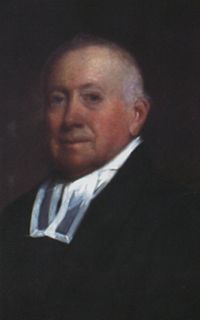 W
WManasseh Cutler was an American clergyman involved in the American Revolutionary War. He was influential in the passage of the Northwest Ordinance of 1787 and wrote the section prohibiting slavery in the Northwest Territory. Cutler was also a member of the United States House of Representatives. Cutler is "rightly entitled to be called 'The Father of Ohio University.'"
 W
WNaphtali Daggett was an American academic and educator. He graduated from Yale University in 1748. Three years later, he became pastor of the Presbyterian Church in Smithtown, Long Island. In 1755, the Yale Corporation persuaded him to return to New Haven to assist President Thomas Clapp in the pulpit, and to be considered for appointment as a college professor. On March 4, 1756, the Corporation inducted him as Yale's first professor—officially the Livingstonian Professor of Divinity.
 W
WThe Reverend Jacob Duché (1737–1798) was a Rector of Christ Church in Philadelphia, Pennsylvania, and the first chaplain to the Continental Congress.
 W
WGeorge Duffield was a leading eighteenth-century Presbyterian minister. He was born in Lancaster County, Province of Pennsylvania in 1732. In 1779, Duffield was elected a member of the American Philosophical Society.
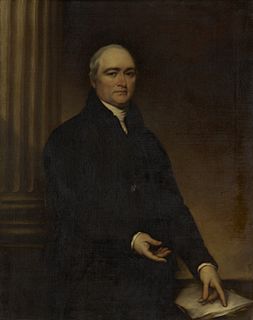 W
WTimothy Dwight was an American academic and educator, a Congregationalist minister, theologian, and author. He was the eighth president of Yale College (1795–1817).
 W
WThe Rev. Samuel Finley was an evangelical preacher and academic. He founded the West Nottingham Academy, and was the fifth president and an original trustee of the College of New Jersey from 1761 until 1766.
 W
WJohn Gano was a Baptist minister and Revolutionary War chaplain who allegedly baptized his friend, General George Washington.
 W
WFather Pierre Gibault was a Jesuit missionary and priest in the Northwest Territory in the 18th century, and an American Patriot during the American Revolution.
 W
WThomas Spottswood Hinde was an American newspaper editor, opponent of slavery, author, historian, real estate investor, Methodist minister and a founder of the city of Mount Carmel, Illinois. Members of the Hinde family were prominent in Virginia, Kentucky, Ohio, and Illinois. His sons Charles T. Hinde became a shipping magnate and Edmund C. Hinde an adventurer. He was the father-in-law of judge Charles H. Constable.
 W
WEdward Holyoke was an early American clergyman, and the 9th President of Harvard College.
 W
WSamuel Kirkland was a Presbyterian minister and missionary among the Oneida and Tuscarora peoples of present-day central New York State.
 W
WThe Reverend William Linn was the second President of Queen's College, serving in a pro tempore capacity from 1791 to 1795. He was also the first Chaplain of the United States House of Representatives.
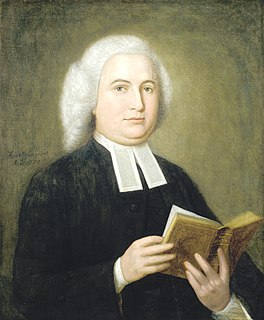 W
WJames Manning was an American Baptist minister, educator and legislator from Providence, Rhode Island. He was the first president of Brown University and one of its most involved founders, and served as minister of the First Baptist Church in America.
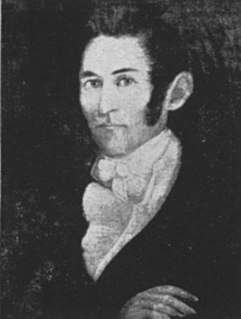 W
WThe Reverend Frederick Valentine Melsheimer was a Lutheran clergyman and early American entomologist, called the "Father of American Entomology" by successor Thomas Say. He was the author of the first major entomological work in the United States: A Catalogue of Insects of Pennsylvania (1806), a sixty-page work that describes 1,363 species of beetles.
 W
WBenjamin Moore was the second Episcopal bishop of New York and the fifth President of Columbia University. He is now chiefly remembered for having given Holy Communion to Alexander Hamilton on his deathbed.
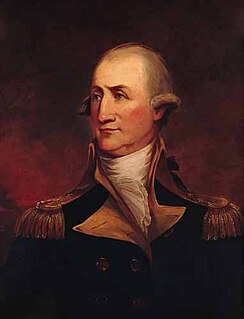 W
WJohn Peter Gabriel Muhlenberg was an American clergyman, Continental Army soldier during the American Revolutionary War, and political figure in the newly independent United States. A Lutheran minister, he served in the United States House of Representatives and United States Senate from Pennsylvania.
 W
WJohn Murray was one of the founders of the Universalist denomination in the United States, a pioneer minister and an inspirational figure.
 W
WRichard Peters, born in Liverpool, became an attorney, Anglican minister, and civil servant. In 1735 he emigrated to Pennsylvania, where he served in numerous posts for the Penn family, including on the Governor's Council from 1749 to 1775, and eventually became rector of Christ Church in Philadelphia.
 W
WThe Rev. John Rosbrugh, also spelled Rosborough and Rosburgh, was a graduate of the College of New Jersey where he studied for the ministry and was ordained a Presbyterian minister. In 1776 he organized and became commander of the 3rd Northampton County, Pennsylvania militia, then accepted a commission as company chaplain. He was killed at the Battle of the Assunpink Creek, also known as the Second Battle of Trenton; the first U.S. chaplain killed in battle.
 W
WWilliam Smith was the first provost of the College of Philadelphia, which became the University of Pennsylvania. He was also the founder of Washington College in Chestertown Maryland, and St. John's College in Annapolis, Maryland.
 W
WEzra Stiles was an American educator, academic, Congregationalist minister, theologian, and author. He is noted as the seventh president of Yale College (1778–1795) and one of the founders of Brown University. According to religious historian Timothy L. Hall, Stiles' tenure at Yale distinguishes him as "one of the first great American college presidents."
 W
WDr. Samuel Stillman (1737–1807) was an American Baptist minister. Born in Philadelphia, Pennsylvania and raised in South Carolina, he married Hannah Morgan and took a pastorate in South Carolina for several years.
 W
WDaniel Waldo was an American clergyman. Born in Windham, Connecticut, Waldo served in the American Revolutionary War and later became a missionary and clergyman. In 1856, at the age of 94, Waldo was named Chaplain of the House of Representatives.
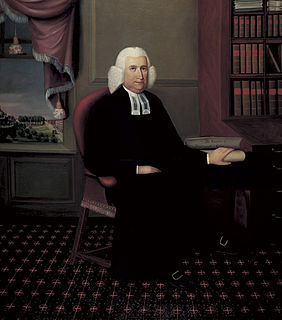 W
WEleazar Wheelock was an American Congregational minister, orator, and educator in Lebanon, Connecticut, for 35 years before founding Dartmouth College in New Hampshire. He had tutored Samson Occom, a Mohegan who became a Presbyterian minister and the first Native American to publish writings in English. Before founding Dartmouth, Wheelock founded and ran the Moor's Charity School in Connecticut to educate Native Americans. The college was primarily for the sons of American colonists.
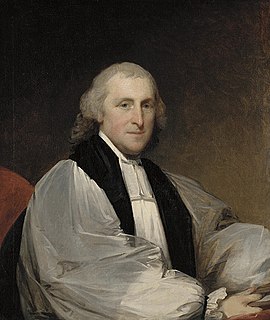 W
WWilliam White was the first and fourth Presiding Bishop of the Episcopal Church of the United States, the first bishop of the Diocese of Pennsylvania (1787–1836), and the second United States Senate Chaplain. He also served as the first and fourth President of the House of Deputies for the General Convention of the Episcopal Church.
 W
WJohn Witherspoon was a Scottish American Presbyterian minister, slaveholder, and Founding Father of the United States. Witherspoon embraced the concepts of Scottish common sense realism, and while president of the College of New Jersey became an influential figure in the development of the United States' national character. Politically active, Witherspoon was a delegate from New Jersey to the Second Continental Congress and a signatory to the July 4, 1776, Declaration of Independence. He was the only active clergyman and the only college president to sign the Declaration. Later, he signed the Articles of Confederation and supported ratification of the Constitution. In 1789 he was convening moderator of the First General Assembly of the Presbyterian Church in the United States of America.
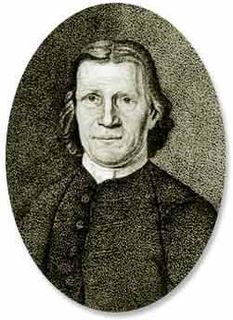 W
WDavid Zeisberger was a Moravian clergyman and missionary among the Native Americans tribes who resided in the Thirteen Colonies. He established communities of Munsee (Lenape) converts to Christianity in the valley of the Muskingum River in Ohio; and for a time, near modern-day Amherstburg, Ontario.